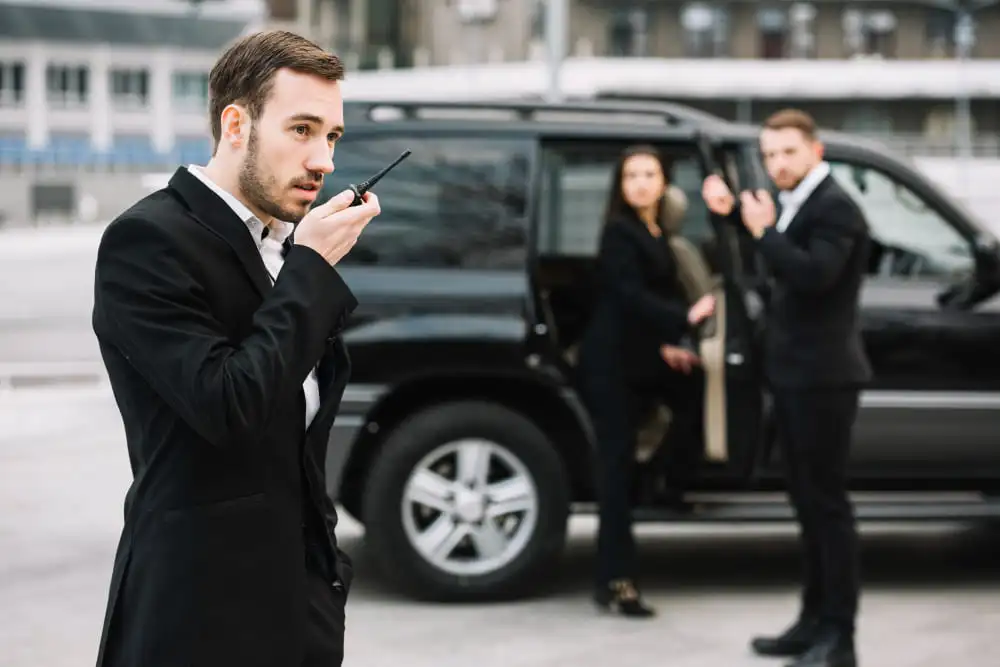What Do Security Guards Usually Do? Key Duties & Responsibilities

Guarding personnel are indispensable for securing the lives and property of people in general or individual premises. They serve as a primary defense against theft, vandalizing and other types of security threats.
Their duties depend on the type of organization they work for, and may include monitoring entrances and exits to secure a building or screening individuals to prevent a robbery.
The Primary Purpose of a Security Guard
Deterring Crime and Maintaining Order
Security officers deter criminal activity through visible presence, telltale patrols, and timely response to incidents.
Protecting People, Property, and Assets
Monitor premises to prevent theft, violence, or infractions of rules; enforce rules appropriate to each level.
Core Duties and Day-to-Day Responsibilities
Patrolling and Surveillance
Security guards patrol a premise to prevent crime, advance and see any unlawful or unauthorized activity
Conducting Regular Foot and Vehicular Patrols
They patrol specific areas on foot or by car to make sure there are no security problems or breaches.
Monitoring CCTV and Alarm Systems
Guards monitor feeds from cameras and alarms to identify unauthorized access or emergencies.
Identifying and Reporting Suspicious Activities or Hazards
If there is anyone who might be a threat to safety — the guy who hits on too many women, or the one who can’t handle his drink — they take notes and report.
Checking for Unlocked Doors, Windows, and Gates
Frequent inspections ensure entryways are secure and minimize the chance of unauthorized entry.
Access Control and Visitor Management
Verifying Identification and Credentials
Security personnel screen IDs so that only authorized persons enter areas of security.
Issuing Visitor Passes and Maintaining Logs
They record the visitor information, issues pass for monitoring and accountability.
Directing Visitors and Managing Traffic Flow
Guards escort, directing visitors to the appropriate places, aiding the flow of movement and safety.
Preventing Unauthorized Entry
They prevent unauthorized people from entering secured areas or sensitive areas.
Emergency Response and Incident Handling
Responding to Alarms and Disturbances
Security guards are responsible for responding to alarms, disturbances or fights.
Administering First Aid or CPR (if trained and certified)
In emergencies, they offer basic medical help until professionals reach the scene.
Assisting in Evacuations and Crisis Situations
Guards assist in directing people to safety during fires, threats and natural disasters.
Collaborating with Law Enforcement and Emergency Services
They work alongside police officers, firefighters or medics to share information and secure the scene.
Reporting and Documentation
Maintaining Detailed Incident Reports
Security guards document events to help in leveraging the investigation for accountability.
Logging Daily Activities and Observations
They log patrols, visitor interactions and run-of-the-mill inspections in daily logs.
Documenting Security Breaches and Irregularities
Any exceptions or policy infractions are recorded for review and appropriate adjustment.
Enforcing Rules and Regulations
Upholding Company Policies and Safety Protocols
Security also make sure that everyone who is on site is abiding by the regulations and safety precautions.
Addressing and Resolving Minor Infractions
They address the kind of loitering incidents or policy violations we have seen in a calm and professional way in order to preserve order.
Customer Service and Assistance
Providing Directions and Information to Visitors
Security guards can guide guests around the premises, offering them clear directions and answering their questions.
Assisting Individuals in Need
They help people who need assistance, such as the elderly, lost tourists, or those in distress.
Varied Work Environments and Specializations
Retail Security (Loss Prevention, Shoplifting Deterrence)
Emphasizes deterring theft, watching consumers and safekeeping products.
Corporate and Office Building Security (Visitor Management, Executive Protection)
Controls entry, supervises movement, safeguards staff and visitors.
Event Security (Crowd Control, Venue Safety)
Ensures orderly conduct, tickets or checks baggage, and provides emergency services during events.
Construction Site Security (Equipment Protection, Trespassing Prevention)
Protect your materials and machines from items off limits.
Residential and Community Security (Patrols, Resident Assistance)
Patrols communities, helps neighbors, and discourages crime.
Healthcare and Educational Facility Security (Patient/Student Safety, Access Control)
Maintains safe and peaceful conditions and controls access and acts in all disturbance situations.
Essential Skills and Qualifications for Security Guards
Key Skills (e.g., Vigilance, Communication, Problem-Solving, Physical Fitness)
Guards must also be alert, clear communicators, quick thinkers in high-pressure situations and able to perform physical duties when necessary.
Education, Training, and Licensing Requirements
Most positions require a high school diploma, basic security training and a valid license, which may vary by jurisdiction. Some require first aid or specialized certification.
What Security Guards Cannot Do (Limitations and Legal Boundaries)
Security guards are not cops, in other words — they can´t arrest you, carry weapons without a license, or use force beyond what they are legally authorized to use. They can only observe, report and deter unless specifically provided by the law.
The Value of Professional Security Services
While not perfect, guards help to ensure protection, provide emergency response, and a sense of security. Their very presence deters crime and ensures the safety of all whom they protect.
Frequently Asked Questions About Duties of Security Guards
Do security guards carry weapons?
Only if licensed and authorized. Most work unarmed, depending on the job and the place.
Can security guards make arrests?
In other words, they can perform a citizen’s arrest if they see a trespasser, for example, but are bound by circumscribed legal boundaries.
How do security guards handle emergencies?
They act based on training: securing the scene, calling the authorities and aiding as best they can.
What is the difference between a security guard and a police officer?
Guards deter and watch; police enforce law, investigate crime and make arrests.
How much do security guards earn?
Compensation varies by location and position — typical entry-level guards, for example, earn a humble hourly wage, while specialized or armed guards can net more.
Send us a message
Start Your Security Journey and Get a Free Consultation.
Security Guard Services
Start A New Project?
Don’t wait to feel secure. Get a free quote today and start your AAM Secure project!
Address
102 West 132nd Street
New York, N.Y. 10027
————————
100 Park Avenue, 16th Floor
New York, N.Y. 10017
